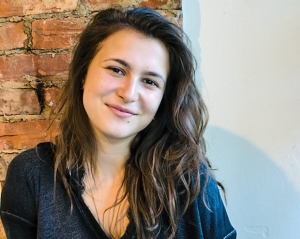“In an ideal world, I’d like to become a novelist,” MacKenzie says.
In her Layton-award-winning short story Myles’ World, excerpted below, a 12-year old boy encounters a series of offbeat individuals. “Besides using the story as an outlet for these weird characters, it was also largely inspired by suburbia itself, a locale I owe my upbringing to and a concept I find strange enough to warrant a story of equal oddity,” she says.
 Sarah MacKenzie
Sarah MacKenzie